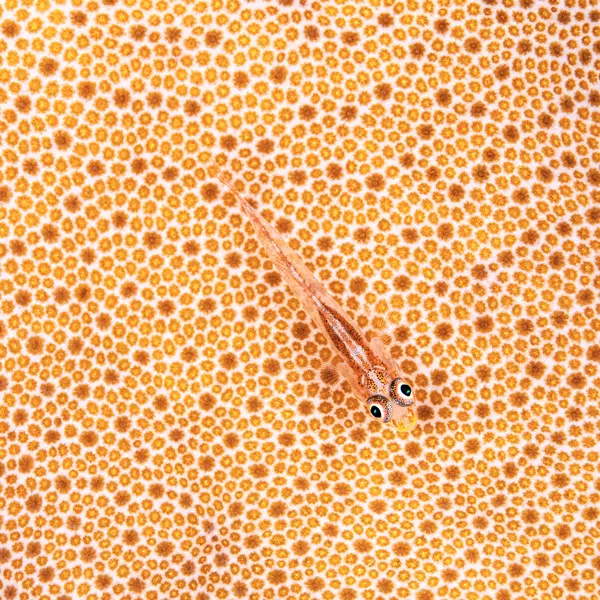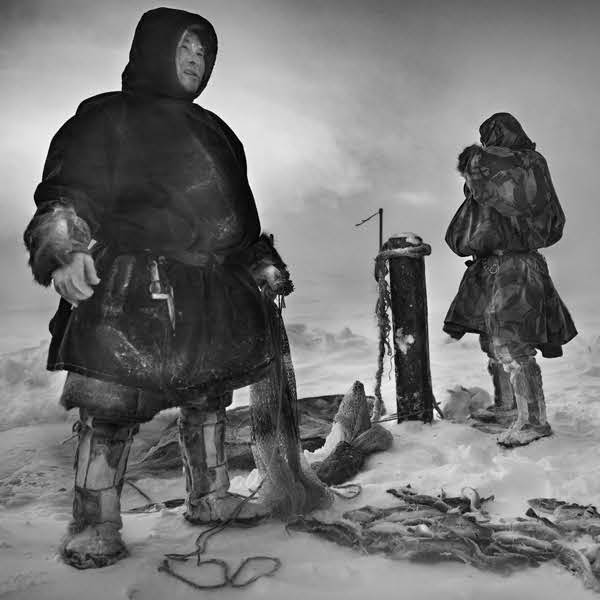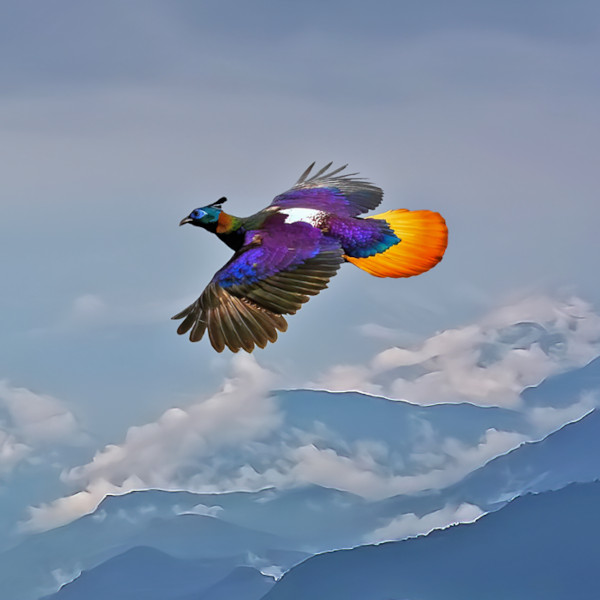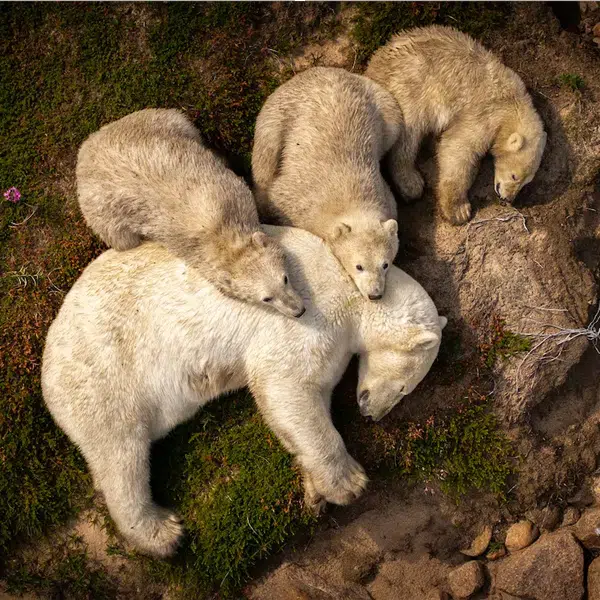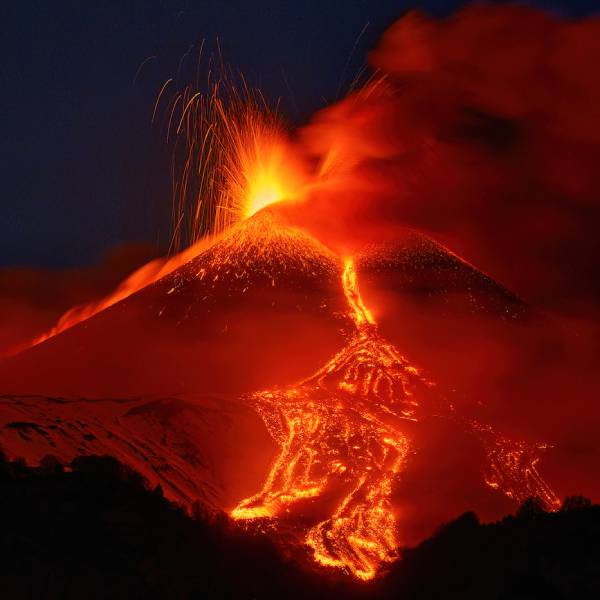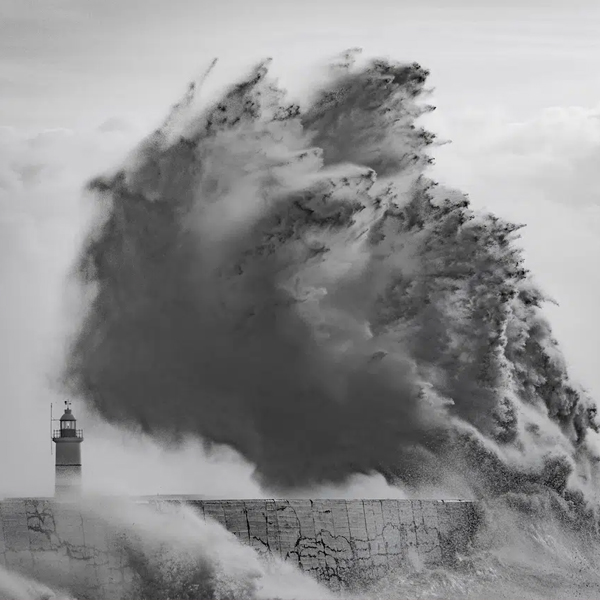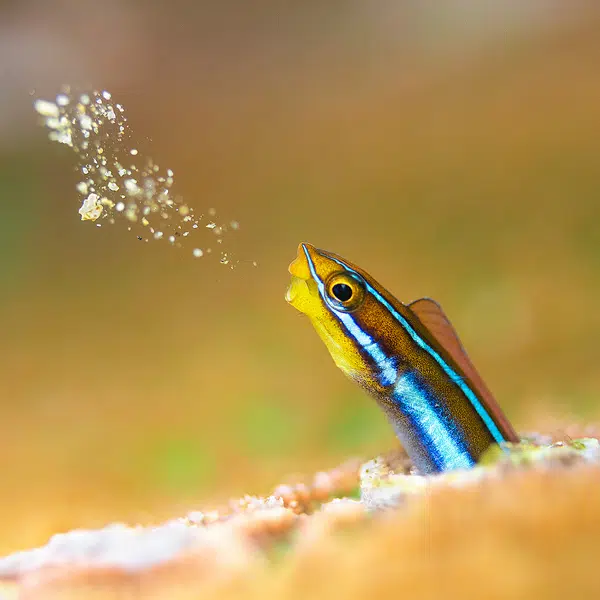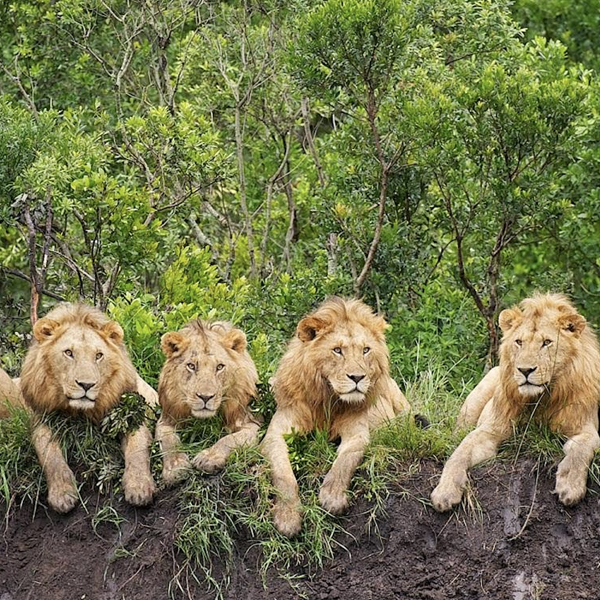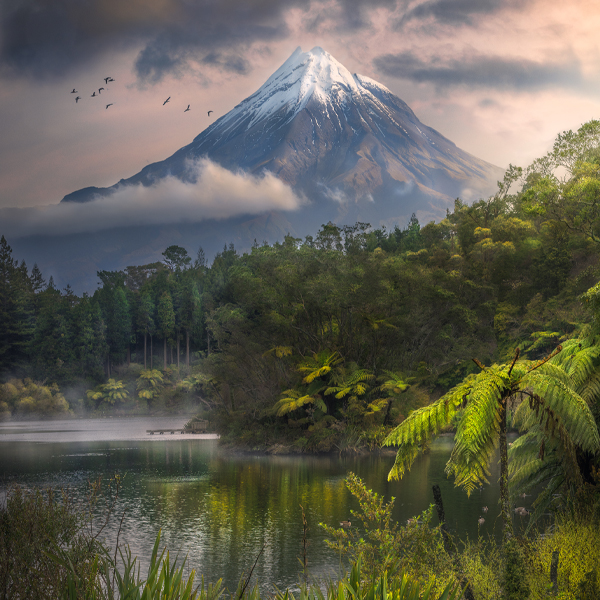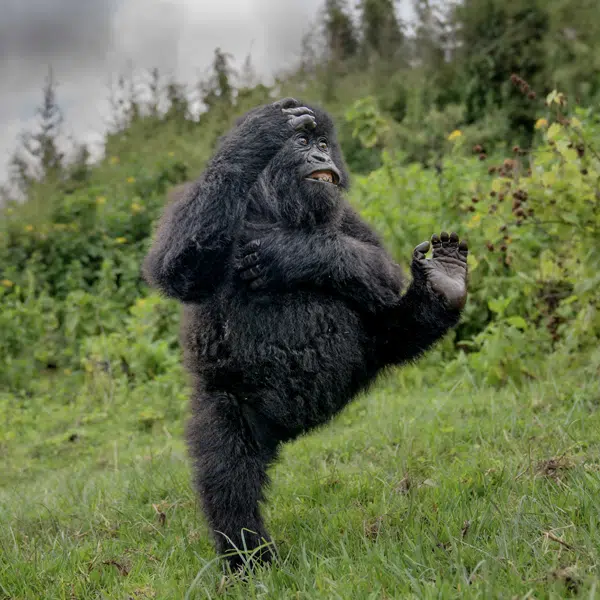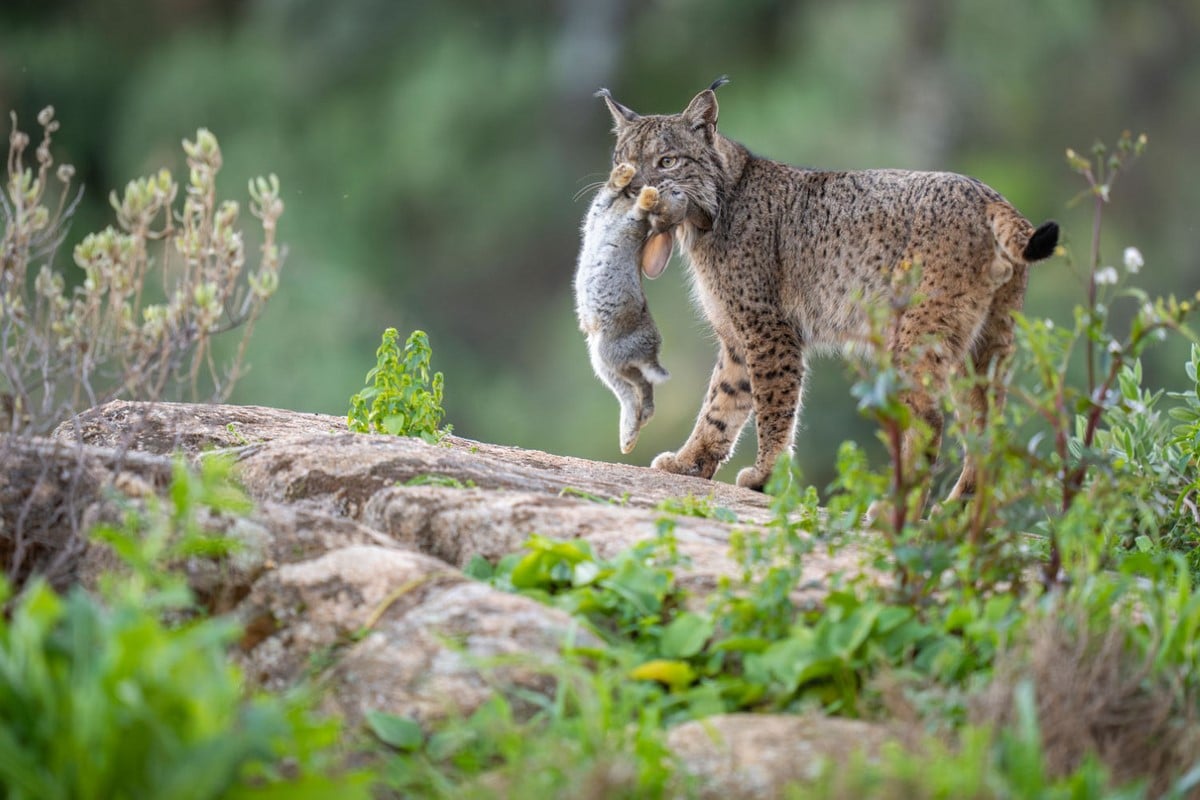
“Iberian lynx” by Staffan Widstrand. Winner, 2024 Rewilding Europe Award.
“The photograph shows an Iberian lynx (Lynx pardinus) with a freshly caught European rabbit (Oryctolagus cuniculus) in the Spanish Sierra de Andújar. The Iberian lynx joins a small number of species making a comeback in recent years. From a low of around 96 individuals worldwide (restricted to Spain), the population has grown to at least 2000 and expanded to Portugal. Strict hunting regulations, a captive breeding program, reintroductions, and promotion of large rabbit populations have all contributed to the lynx's comeback. Wildlife crossings, particularly in the form of tunnels under roads, have significantly reduced traffic-related kills. This individual was photographed from a hide on a private estate on which lynx represents a business asset that secures jobs and income.”
Swedish photographer Staffan Widstrand won the Rewilding Europe Award for his incredible photo of an Iberian lynx clutching a European rabbit in its mouth. Taken in Spain, it is a testament to the revival of the Iberian lynx, which had at one time fallen to less than 100 individuals. Widstrand's image of the thriving feline perfectly exemplifies the contest's desire to show how Europe's rewilding movement allows people and nature to flourish alongside each other.
The competition is part of the prestigious GDT European Wildlife Photographer of the Year competition and rewards photographs that are both aesthetically strong and tell the story of Europe's rewilding.
“The Rewilding Europe Award is more than just a photography prize,” says Laurien Holtjer, Rewilding Europe’s director of engagement and public relations. “It’s a way to connect people with the rewilding movement and inspire practical rewilding efforts. These images show us what’s possible when we take action to restore nature and then let nature take the lead in managing itself. They are a testament to the resilience of our wild spaces and a call to action for a wilder, healthier future.”
Many of the photographers, including runner-up Bernhard Schubert, focused on the rehabilitation of river systems and marine environments. Schubert's photograph focuses on how rewilding Europe's waterways allows species like Danube salmon to spawn and migrate successfully.
Other images focus on breeding programs and habitat rehabilitation, which is slowly bringing some of Europe's at-risk species back from the brink. Scroll down to see all of the winning images, which help give a broad view of how Europe's rewilding is helping the environment.
The Rewilding Europe Award is part of the GDT European Wildlife Photographer of the Year contest.
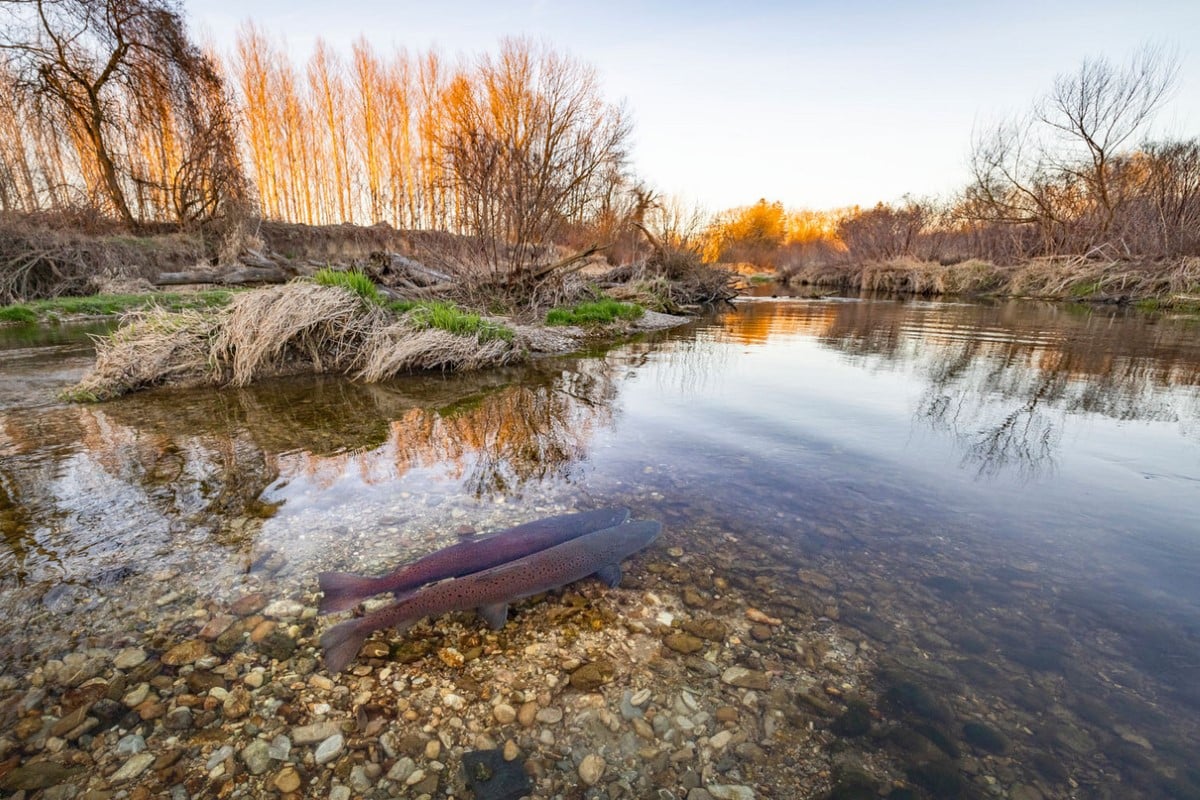
“Huchen habitat” by Bernhard Schubert. Runner-up, 2024 Rewilding Europe Award.
“A pair of huchen (Hucho hucho), also known as Danube salmon, swim above a spawning pit dug by the female in the streambed. That huchen make it this far in their life cycle cannot be taken for granted. Being able to migrate to their spawning grounds requires barrier-free access. Insurmountable weirs are only one of the many challenges facing the fish. Sections of river that are left wild as here on the Pielach in Austria are essential.”
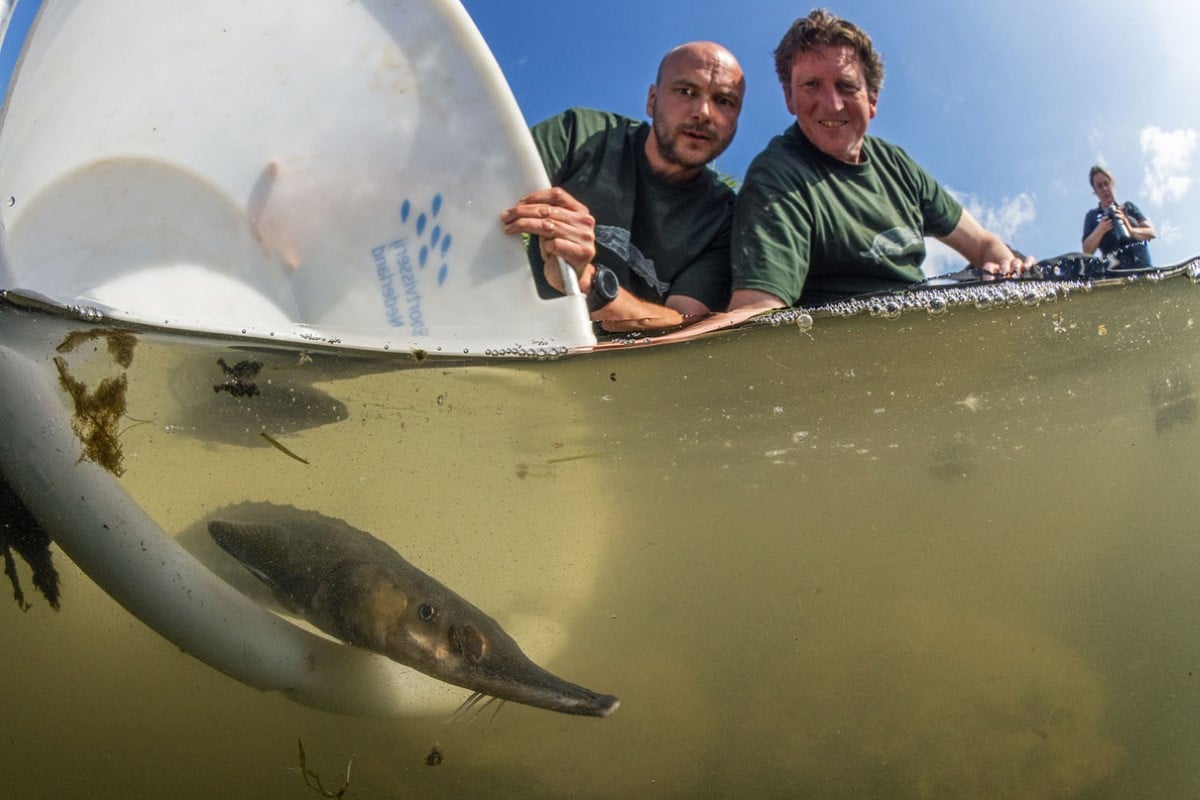
“Hope for the future of our rivers” by Arthur de Bruin. Highly Commended.
“After decades, the breeding program for the European sea sturgeon (Acipenser sturio) is showing the first signs of success with offspring being released into the river Rhine. The reintroduction of such endangered, yet formerly widespread, fish species gives us hope. Why else should we preserve these animals if not in the hope that our rivers will once again become home to locally extinct fish species?”
It rewards photographs that are both aesthetically strong and tell the story of Europe's rewilding.
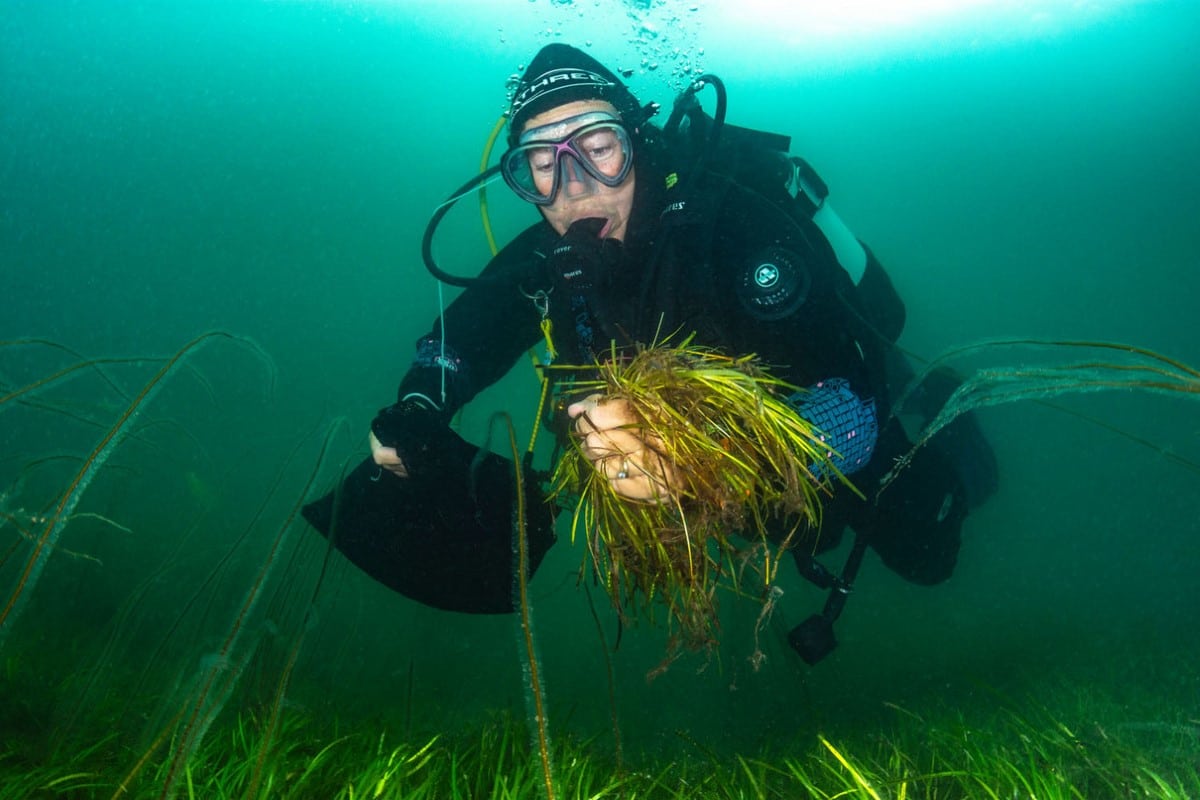
“Seeds of hope” by Lewis Jefferies. Highly Commended.
“A marine biologist from Project Seagrass collects seagrass (Zostera marina) seeds in Porthdinllaen, North Wales, as part of the initiative Seagrass Ocean Rescue in partnership with WWF-UK and Sky Ocean Rescue. The samples are then sent to Swansea University for propagation and transferred to the Dale coast in Pembrokeshire as part of the UK's largest seagrass reintroduction initiative with the aim of establishing one million plants. Around the world, seagrass meadows have been lost due to human impact – including water pollution, shipping, and climate change – and it is essential that action be taken now to safeguard this important habitat for the future. Seagrass, one of a small number of marine flowering plant species, plays an extremely important role in marine ecosystems as it absorbs large amounts of carbon from the atmosphere and is both habitat and nursery for diverse marine animals, including endangered (e.g., seahorses) and commercially important (e.g., cod and saithe) species.”
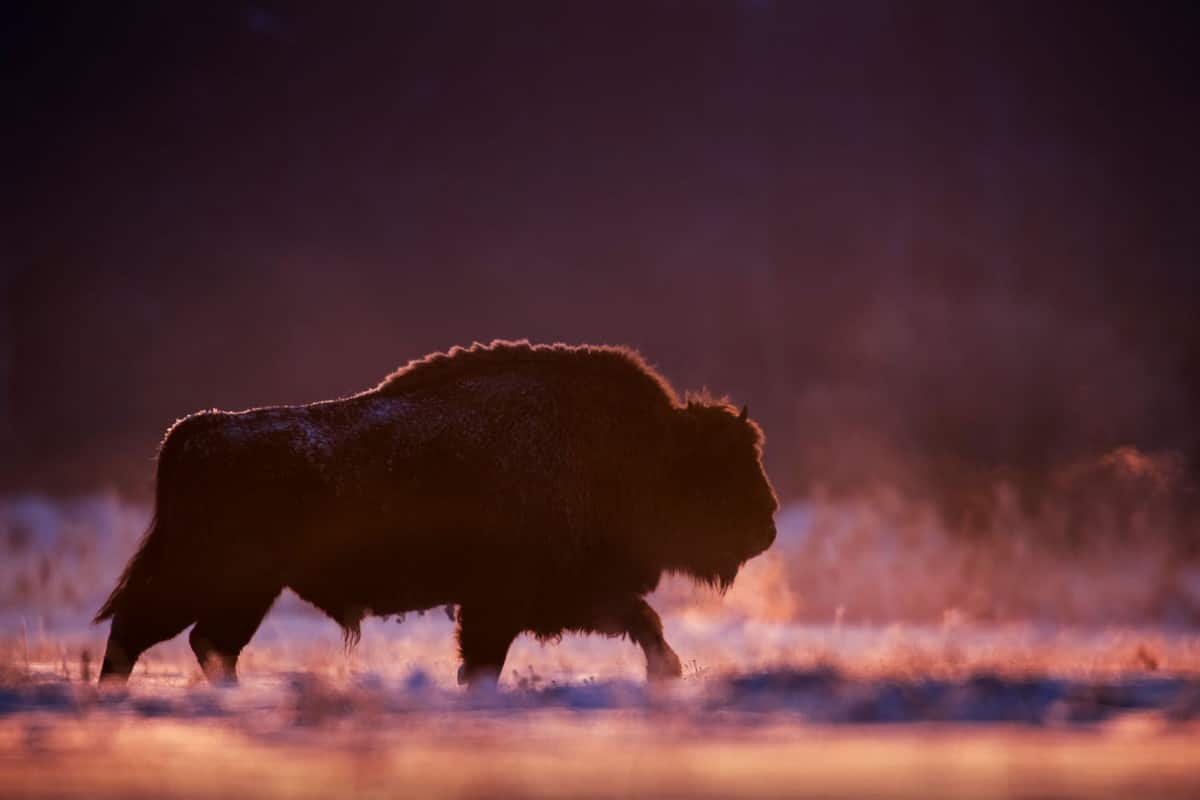
“King of the East” by Florian Smit. Highly Commended.
“This photograph shows one of the numerous European bisons (Bison bonasus) reintroduced to Poland's Bialowieza National Park near the border with Belarus. In 1927, the last free-living bison in the Caucasus was shot and the species was considered extinct in the wild in Europe. With the help of a small group of animals from zoological gardens and private owners, the European bison was saved from extinction. As of 2023, around 7,200 individuals exist in Europe. However, habitat fragmentation and low genetic diversity continue to pose challenges to the survival of this species.”











































































